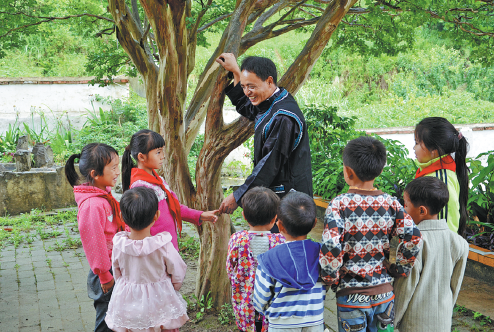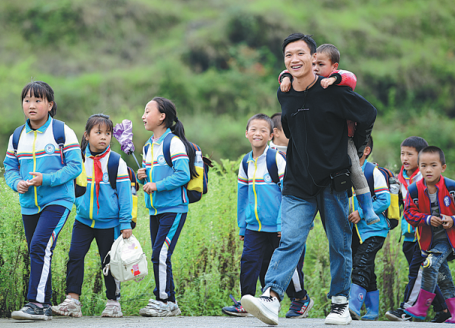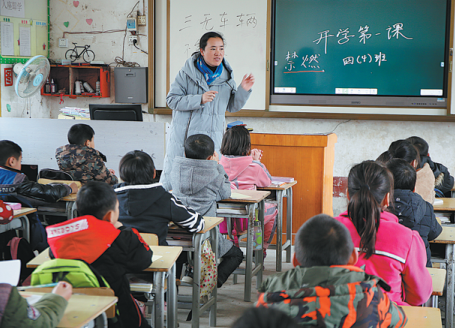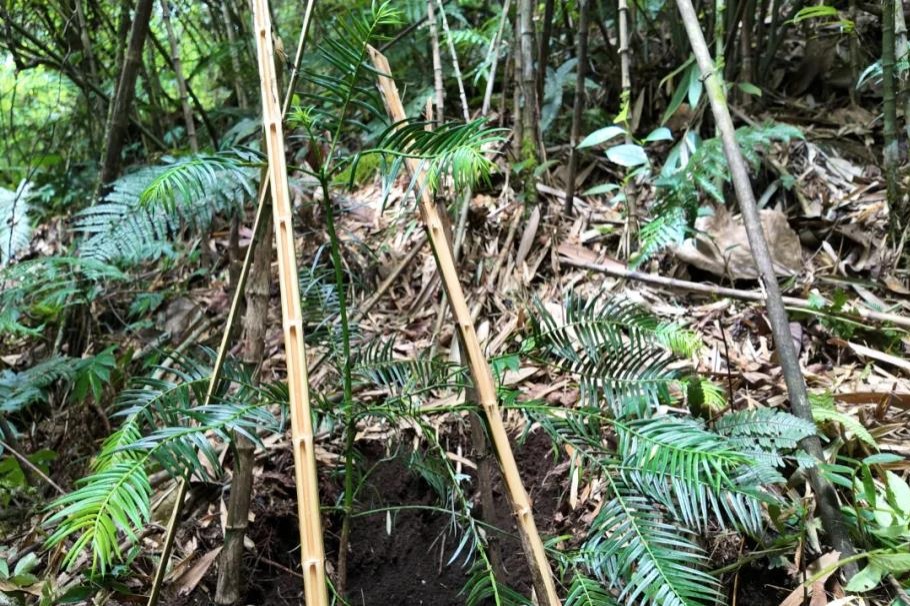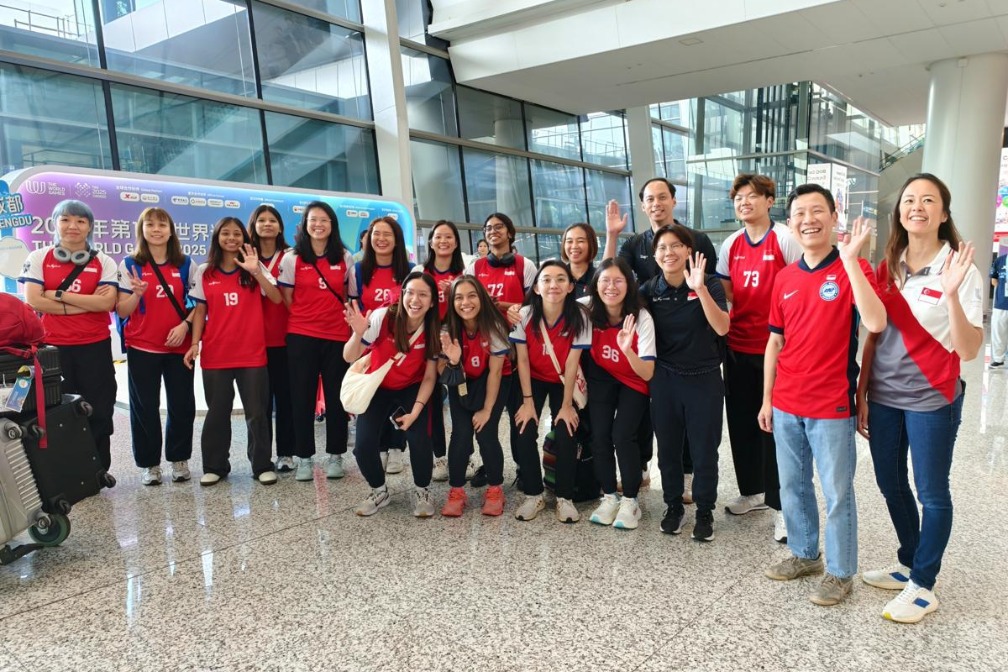Teacher dedicates life to rural students
Educator still going strong after more than three decades in isolated village. Zhao Yimeng reports.

This is the 35th year that Nong Jiagui has been at his post as a village teacher in Guangnan county in the southwestern province of Yunnan.
When, at age 19, he "accidentally" became the first teacher in the village, which was once an isolated treatment center for people with leprosy, the 54-year-old didn't expect to stay in the deep mountains for so long.
In 1957, the settlement was built as a dedicated center for more than 180 patients with leprosy and their families from nearby Bawang village.
The condition-a chronic infectious disease that mainly causes skin lesions and nerve damage-was prevalent in Southwest China during the 1950s.
The new village was located in a deep mountain valley and it was taboo for nearby villagers to even mention it by name, so they called it the "leprosy village" or "that place".
Nong, a member of the Zhuang ethnic group, lived 10 kilometers away. He grew up hearing rumors about "that place" and was scared by his parents' feigned threats to "send me to the village if I did not behave". Many years later, though, he moved to the village to teach local children.
Nong dropped out of school in 1986 because his family couldn't afford the tuition fees.
Despite that, his uncle, a rural teacher, recommended that the young lover of literature should become a teacher "somewhere".
He didn't realize that "somewhere" meant "that place" until he was leaving. Nong firmly refused to go and his father blamed his uncle for "ruining the boy's future".
His uncle insisted that Nong should "take a look at the place, where teachers were needed. He said I could find another place with teaching opportunities later".
Anxious atmosphere
Nong said he was scared by the anxious atmosphere at the health center when he first arrived in the village.
"The doctors comforted me for a whole day and showed me how to disinfect things. They told me that the students were cured and healthy, and the classroom was inside the health center and under the care of medics," Nong said.
During the first class he taught, the parents stood far away when they sent their children through the doors in case they frightened off the only teacher in the village.
"When I saw that the children were healthy and lively and their eyes were full of eagerness to learn, I could not run away, no matter how scared I was," Nong recalled.
He kept a distance from the 12 children ages 5 to 12 during that class, which was held in a 20-square-meter classroom in a renovated ward. He taught the older students how to hold a pen and they taught the younger children.
He was touched by the students' passion for learning and also relieved that he didn't become infected with any diseases.
Initially, Nong earned 19 yuan a month, but the villagers voluntarily raised a monthly subsidy of 35 yuan.
He was moved when he heard that they had steamed bank notes in a pressure cooker to kill any bacteria before giving them to him. Such repeated acts of kindness gradually made him determined to stay.
"I knew I had to keep my promise: I had to teach the children well and send them out of the village," Nong said.
In 1992, the first batch of students graduated from the primary school and enrolled in secondary schools outside the village. Nong remembers carrying their luggage and walking with them down the mountain for three hours to reach the county seat.
New name
Though his students were afraid of leaving the village for the first time and cried when they were parted from him, Nong was proud that they had gone to better schools.
He named the village Luosongdi-"peanuts" in the Zhuang language, and the dominant crop-so the students could write down their family address without anyone making a connection with leprosy when they registered at new schools.
Nong was once dispatched to a school in another village.
"All my students saw me off on a rainy day. I couldn't figure out if it was rain or tears running down their faces," he recalled.
He returned to Luosongdi after just one semester, though, because he couldn't give up on the children and friendly villagers.
"The children in the village needed me more. Education can change a child's life for six years, and a good education can affect a family for six or 60 years and even change their destiny," he said.
Until last year, he was the only teacher in the village. Usually he had to take care of 25 students and moved among three classes.
In September, Luosongdi took advantage of a special rural recruitment program to employ a 22-year-old graduate to share the teaching duties with Nong.
Zhu Lidan, the graduate, is responsible for most subjects, including English, music and art. Nong teaches science and math and oversees school administration. He earns 6,000 yuan ($920) a month.
The school only has six students at present because most have followed their parents who have left the village to find work. Those children now attend schools in big cities.
Huang Zuofu, an official with the county education bureau, said that as the generation of leprosy patients has passed away, the village has become more open to the outside world.
"All school-age children were enrolled in the primary school after Nong came," Huang said.
"Now he teaches children during the day and helps to eradicate adult illiteracy at night school, in addition to providing basic information about agriculture and law."
Nong is happy that the children who have moved to big cities can enjoy better teachers and more facilities.
"But as long as one child in the village needs me, I will keep teaching," he said.
"If someday there are no students in the village, I will consider teaching in a poorer region."
Li Yingqing contributed to this story.
